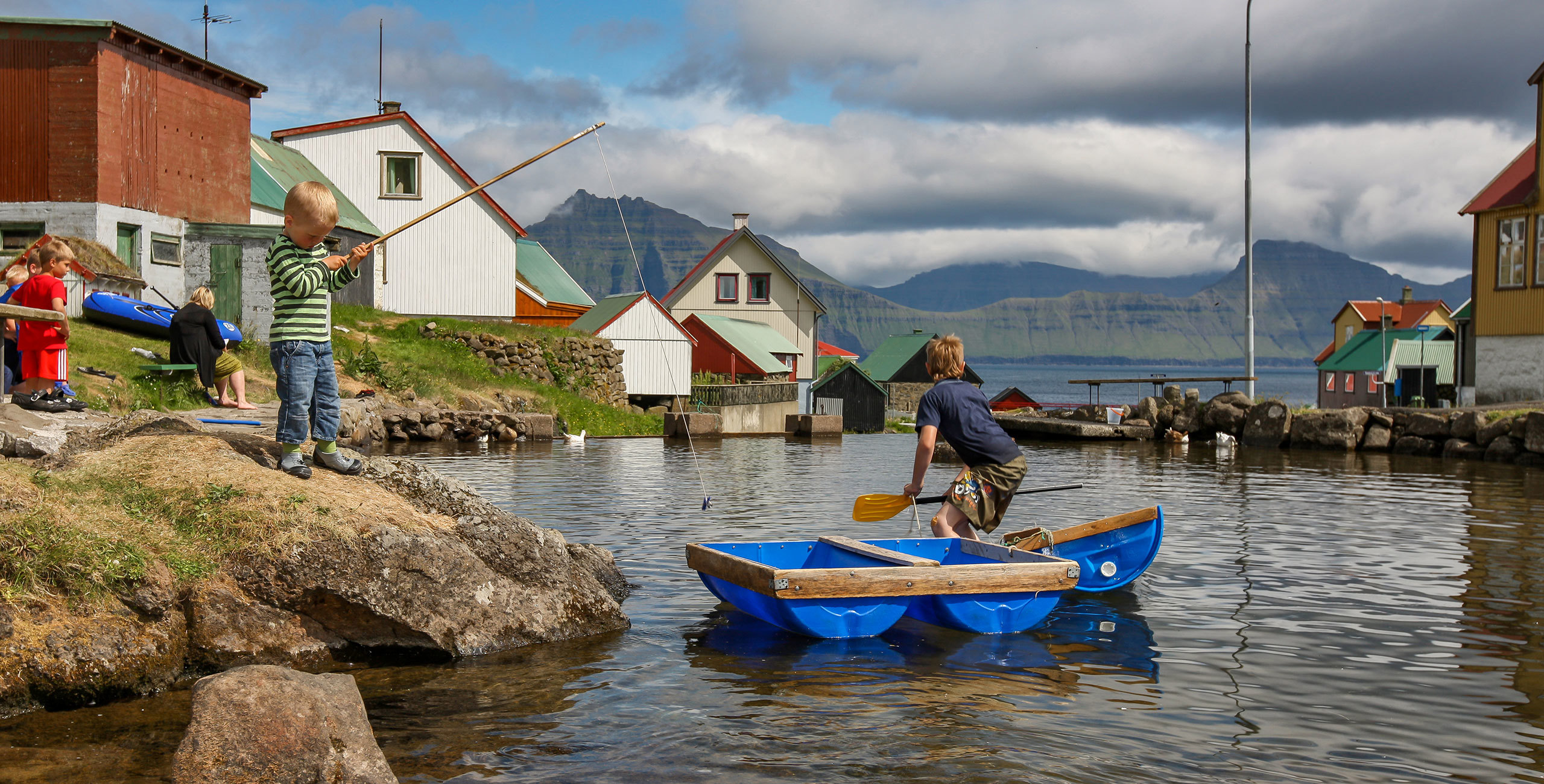Children are at the very centre of the Faroese family. Presenting the highest fertility rate in Europe (approximately 2.3 in 2021), the Faroe Islands are composed of relatively large family units. Children are quite independent and, so to speak, permitted to go their own way. As an amazed American anthropologist has said, Faroese upbringing comes “with an almost incredible tolerance”. In the small villages, children learn which areas to avoid at a very young age: the cliffs, rocky seashore, etc. and for the most part, these dangerous areas represent the only limits to the children’s freedom of movement. The visiting anthropologist added that Faroese children are “generally allowed to do as they will – to be shy or obstreperous as the mood takes them”. Indeed, because of its safe and peaceful environment, many consider the Faroe Islands a child’s paradise.
Faroese children typically have close social bonds with relatives living nearby – e.g. grandparents, cousins, aunts and uncles – which gives them experiences beyond the household. The grandmother is for instance often a central actor in the Faroese family network. The interaction between children and their parents is in many cases of a quite informal and egalitarian nature, reflecting the afore-mentioned autonomy of the children. By European standards, you might conclude that the Faroese way lacks structural parental supervision, however, children are hardly overlooked in the transparent, small-scale society.
As an example of this child centred mentality, a private or public place will never refuse entrance to a parent bringing a small child or even an infant. On the contrary, the presence of the child will normally result in a relaxed and familial atmosphere. Never considered a societal ‘problem’, children are encouraged to participate in day-to-day work as well as play.
